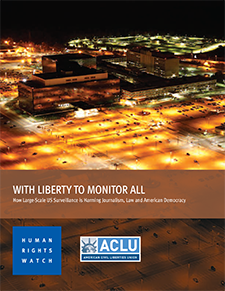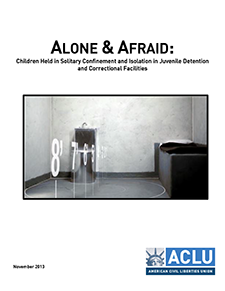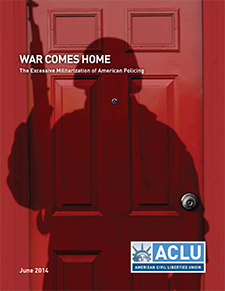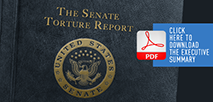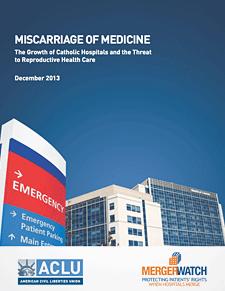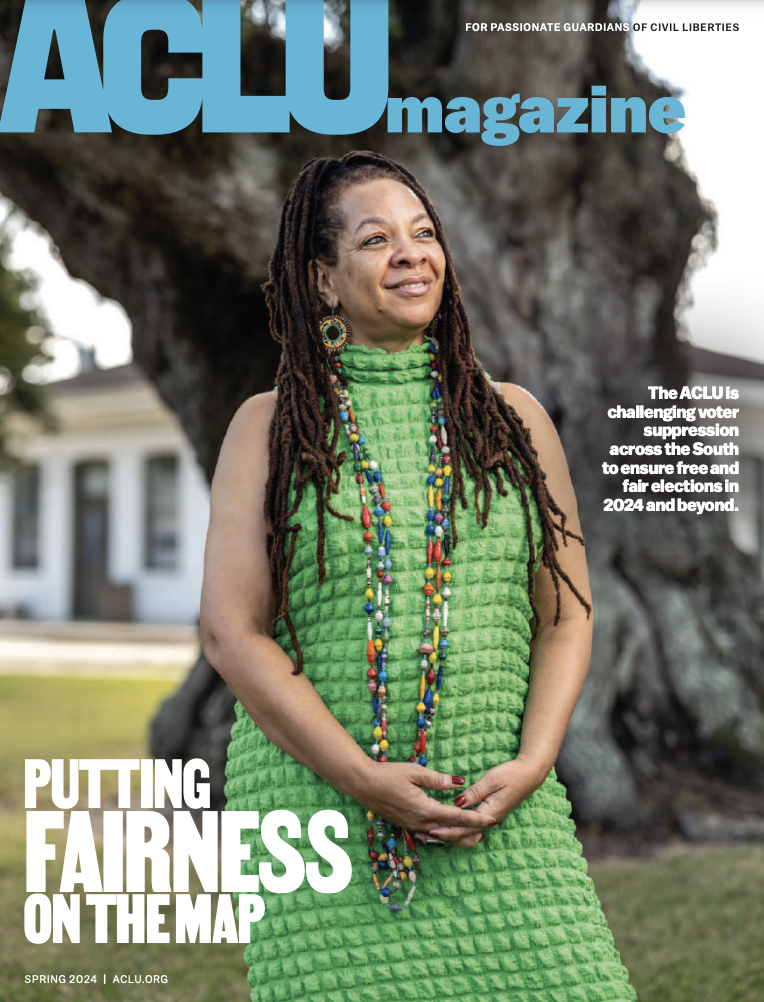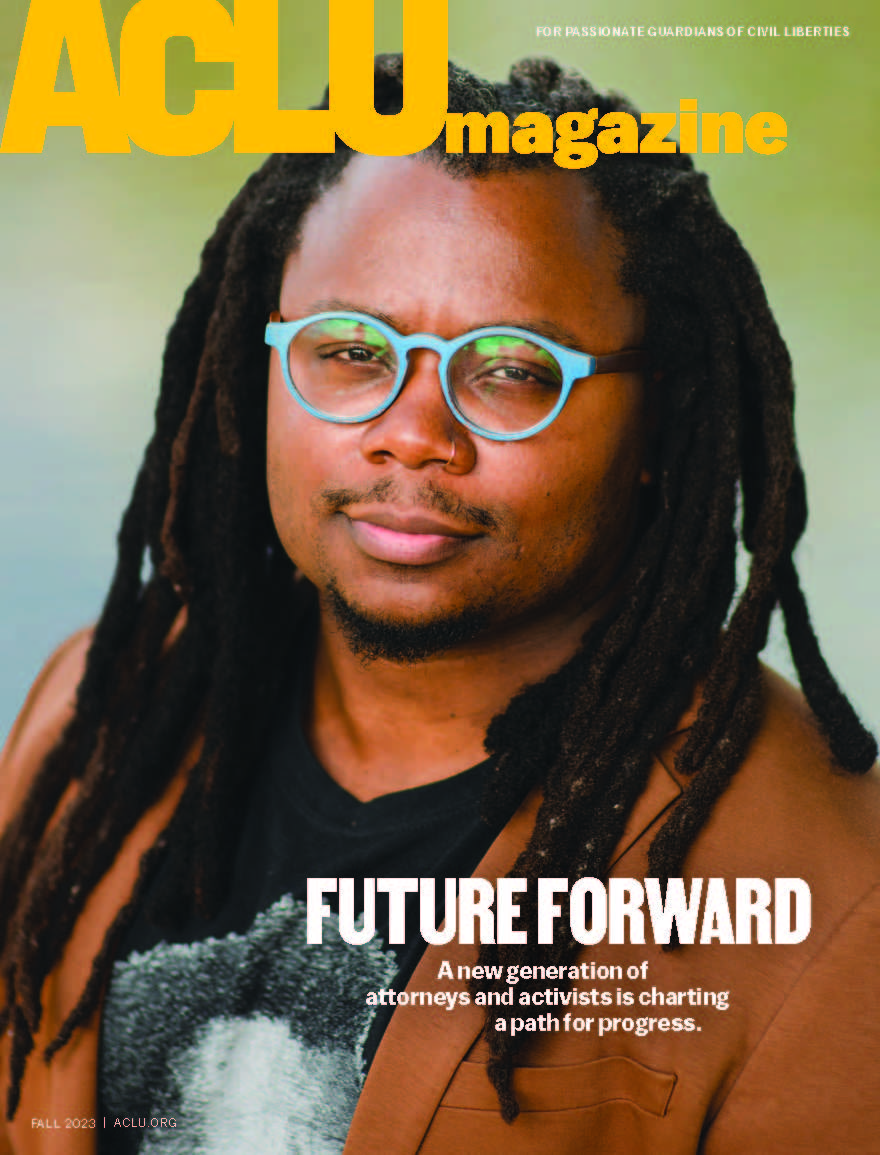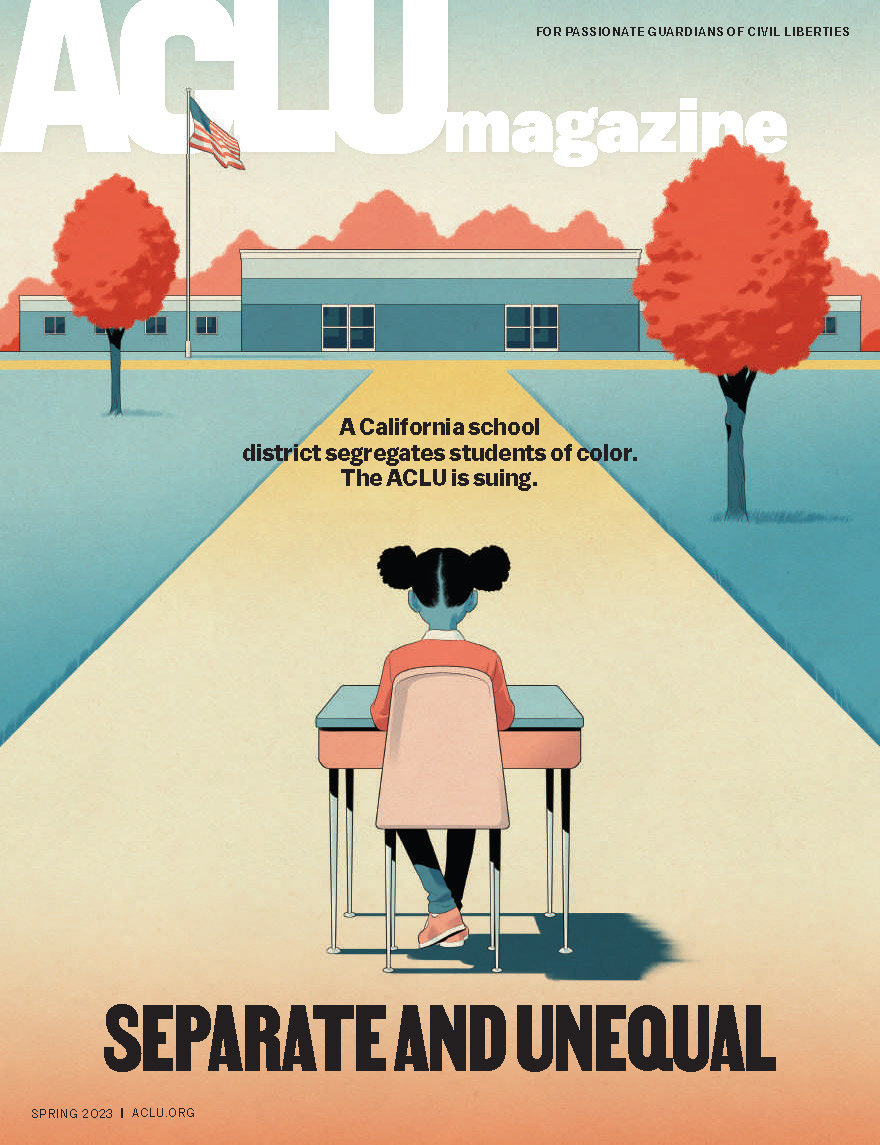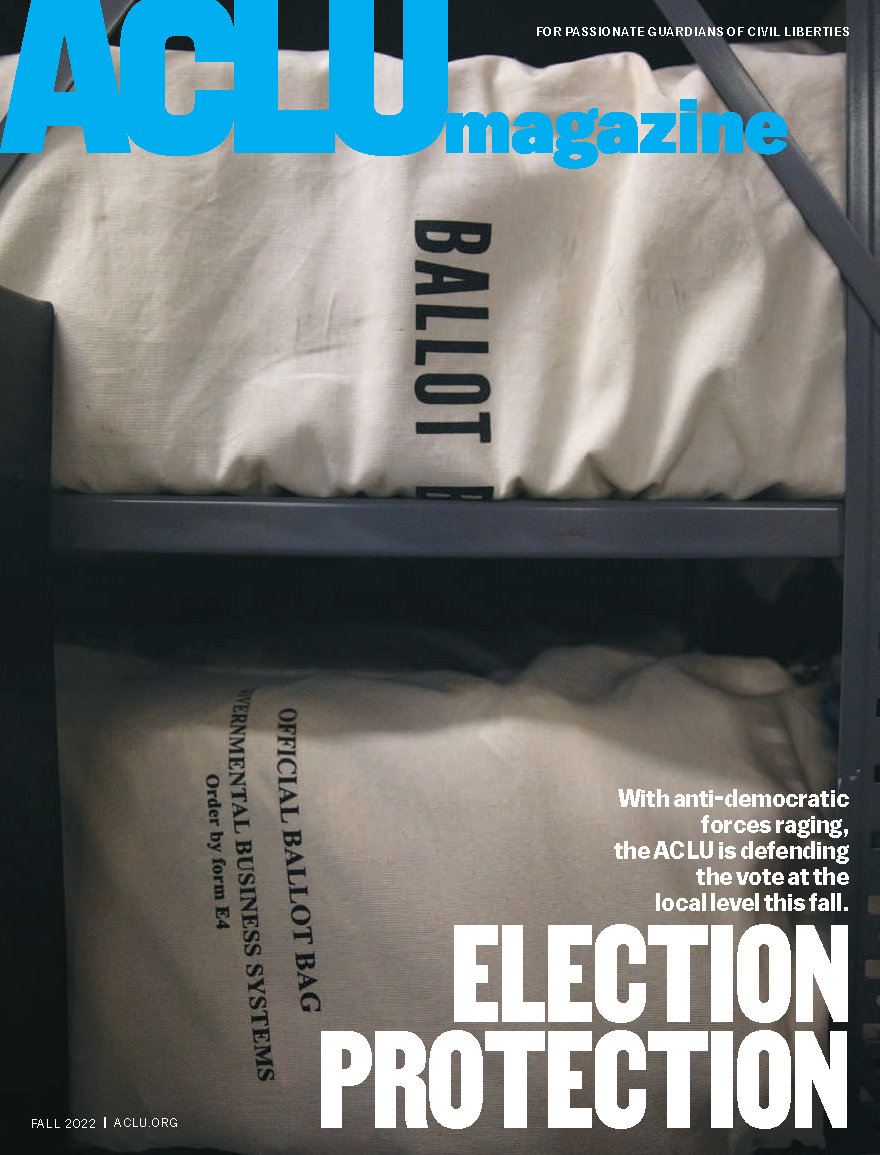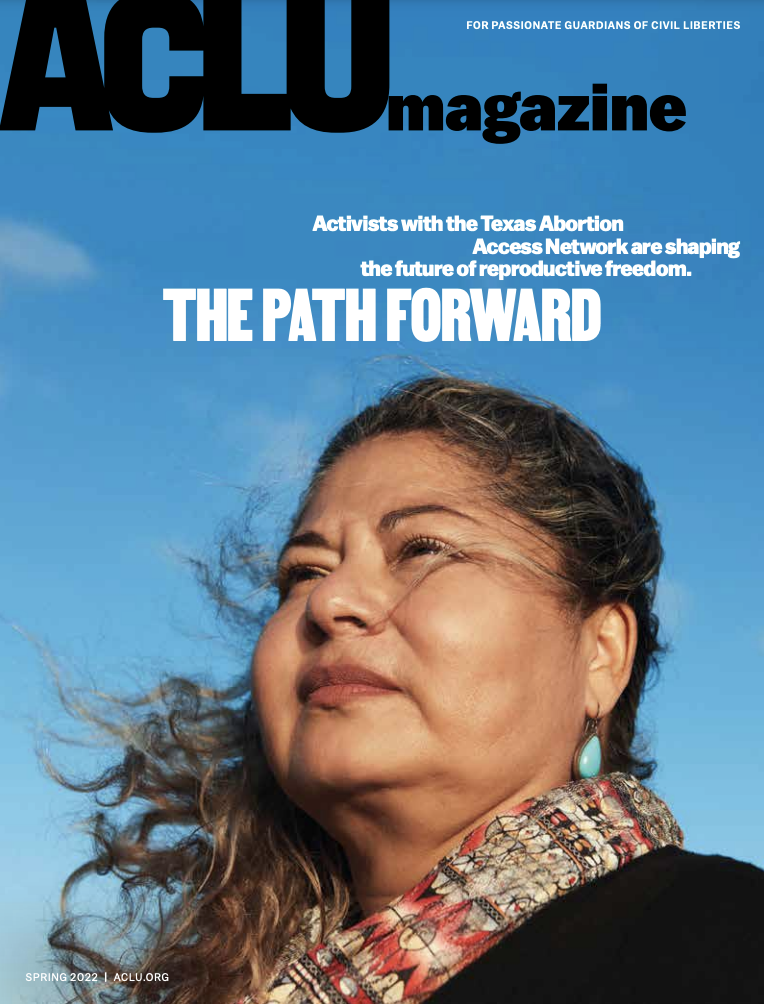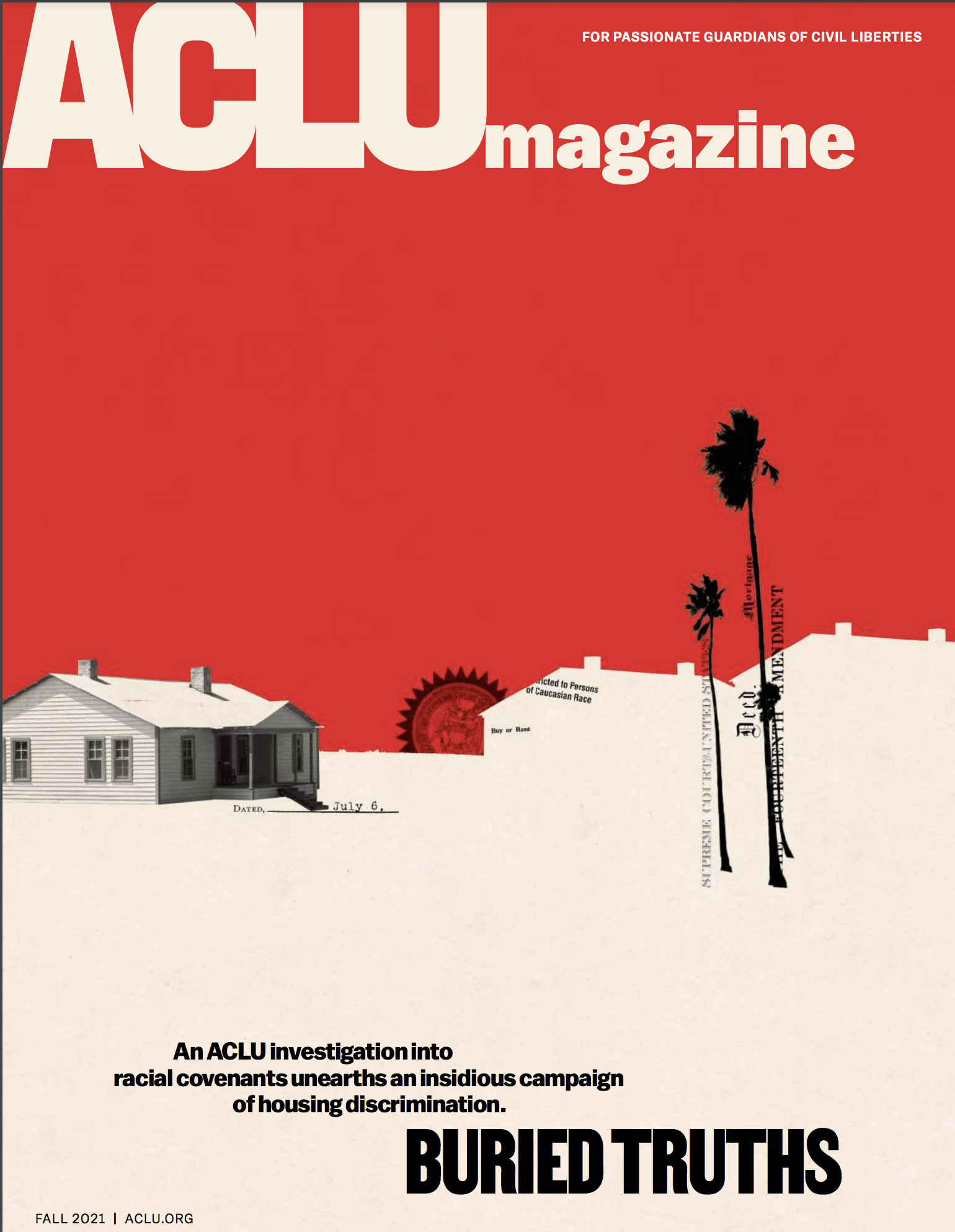Research & Publications
Access in-depth resources and analysis published by the ACLU regarding our most pressing civil liberties issues.
All Publications
Search will open in a new tab using DuckDuckGo
With Liberty to Monitor All: How Large-Scale US Surveillance is Harming Journalism, Law, and American Democracy
For much of its history, the United States has held itself out as a model of freedom, democracy, and open, accountable government. Freedoms of expression and association, as well as rights to a fair trial, are protected by the Constitution, and US officials speak with pride of the freedom of the media to report on matters of public concern and hold government to account for its actions. Yet, as this report documents, today those freedoms are very much under threat due to the government’s own policies concerning secrecy, leak prevention, and officials’ contact with the media, combined with large-scale surveillance programs. If the US fails to address these concerns promptly and effectively, it could do serious, long-term damage to the fabric of democracy in the country.
Specifically, this report documents the effects of large-scale electronic surveillance on the practice of journalism and law, professions that enjoy special legal protections because they are integral to the safeguarding of rights and transparency in a democracy. To document these effects, we interviewed 92 people, including 46 journalists and 42 lawyers, about their concerns and the ways in which their behavior has changed in light of revelations of largescale surveillance. We also spoke to current and former senior government officials who have knowledge of the surveillance programs to understand their perspective, seek additional information, and take their concerns into account in our analysis.
Whether reporting valuable information to the public, representing another’s legal interests, or voluntarily associating with others in order to advocate for changes in policy, it is often crucial to keep certain information private from the government. In the face of a massively powerful surveillance apparatus maintained by the US government, however, that privacy is becoming increasingly scarce and difficult to ensure. As a result, journalists and their sources, as well as lawyers and their clients, are changing their behavior in ways that undermine basic rights and corrode democratic processes.
Author: Alex Sinha (@AlexSinha)
Press Coverage: Common Dreams | Le Point | The Washington Times | Democracy Now | The Washington Infomer | Statewatch
Articles/Blogs Written By Author: “Alex Sinha: How Surveillance is Harming Journalism” – The Providence Journal | “Spying on the newsroom” – The Hill | “A New U.N. Champion for Privacy” – ACLU | “Better Privacy Protections Are a Key to U.S. Foreign Policy Coherence” – ACLU | “Government Attempt to Speed Up Guantánamo Trials (Rightfully) Backfires” – ACLU | “British Spying Is Our Problem, Too” – ACLU | “How Surveillance is Changing Journalism and the Law” – ACLU
Related Advocacy/Litigation: Oklahoma Observer v. Patton – Defending Press Right to Observe Executions | Big Win for ACLU in NSA Surveillance Case
Alone & Afraid
The solitary confinement of children is child abuse, plain and simple. And still, on any given day in this country, juvenile justice facilities routinely subject the 70,000 kids in their care to solitary confinement. Solitary can cause extreme psychological, physical, and developmental harm. For adults, the effects can be persistent mental health problems, or worse, suicide. And for children, who are still developing and more vulnerable to irreparable harm, the risks of solitary are magnified – particularly for kids with disabilities or histories of trauma and abuse.
This toolkit provides advocates with comprehensive resources to end the solitary confinement of kids. Follow the links below to explore the toolkit’s resources. For a brief background of the problem of youth solitary in juvenile facilities and solutions to it, read Alone and Afraid: Children Held in Confinement and Isolation in Juvenile Detention and Correctional Facilities.
Start a Campaign: Protecting Children from Isolation
In order to lay the groundwork for an effective Stop Solitary campaign focused on juvenile detention and correctional facilities, it is important to gather as much information as possible regarding the juvenile detention policies and practices in your jurisdiction as possible. A key part of this work must involve elevating the experiences of young people subjected to isolation. These tools include guidance on how to start a campaign, including pointers on how correspond and talk to these young people, how to learn from their stories, and how to remain sensitive to the trauma of solitary confinement.
- Campaign Dos and Don’ts
- Getting Started – Information Needed to Start a Campaign
- Checklist for a Visit to Juvenile Detention or Correctional Facility
- Interview Guide Talking to Youth about Solitary Confinement
- Interview Guide Sample Consent and Release Forms
- Corresponding with Youth about Solitary Confinement
Changing the Law: Advocacy Materials and Model Legislation
Legislation can be a key element to successful reform. The Juvenile Justice Stop Solitary Act is one proposal to limit solitary confinement and other forms of isolation in juvenile detention and correctional facilities. These resources provide more information about the proposed legislation, additional guidance on advocacy, and discussion of the impact of the Prison Rape Elimination Act and international law on the solitary confinement of youth.
- Model Juvenile Justice Stop Solitary Act
- Two-Pager: Solitary Confinement and Isolation in Juvenile Detention and Correctional Facilities
- PREA Two-Pager
- National Standards Restricting the Solitary Confinement of Youth
- International Law and Practice
National Standards and Policy Goals
One of the first questions you may be asked in your campaign is, “what is the alternative?” Fortunately, this question has been thoroughly addressed by a variety of experts. Every set of standards or national best practices for caring for youth in confinement settings strictly regulates isolation. These tools provide guidance on additional strategies to end the use of solitary confinement against children, as well as policy proposals from organizations like the American Academy of Child and Adolescent Psychiatry.
War Comes Home: The Excessive Militarization of American Police
Across the country, heavily armed Special Weapons and Tactics (SWAT) teams are forcing their way into people’s homes in the middle of the night, often deploying explosive devices such as flashbang grenades to temporarily blind and deafen residents, simply to serve a search warrant on the suspicion that someone may be in possession of a small amount of drugs. Neighborhoods are not war zones, and our police officers should not be treating us like wartime enemies. However, the ACLU encountered this type of story over and over when studying the militarization of state and local law enforcement agencies.
This investigation gave us data to corroborate a trend we have been noticing nationwide: American policing has become unnecessarily and dangerously militarized, in large part through federal programs that have armed state and local law enforcement agencies with the weapons and tactics of war, with almost no public discussion or oversight. Using these federal funds, state and local law enforcement agencies have amassed military arsenals purportedly to wage the failed War on Drugs, the battlegrounds of which have disproportionately been in communities of color. But these arsenals are by no means free of cost for communities. Instead, the use of hyperaggressive tools and tactics results in tragedy for civilians and police officers, escalates the risk of needless violence, destroys property, and undermines individual liberties.
The Senate Torture Report
The executive summary, findings, and conclusion of the Senate Intelligence Committee’s landmark torture report.
Miscarriage of Medicine
The number of Catholic acute-care hospitals has been increasing rapidly, threatening women’s access to reproductive health care, according to a report released by the American Civil Liberties Union and The MergerWatch Project. The report finds that:
Between 2001 and 2011 the number of Catholic-sponsored or -affiliated hospitals increased by 16 percent, while the overall number of hospitals nationwide declined.
In 2011, one in ten acute-care hospitals were Catholic-sponsored or -affiliated.
That same year, 10 of the 25 largest hospital systems in the country were Catholic-sponsored.
With the rise of Catholic hospitals has come the increasing danger that women’s reproductive health care will be compromised by religious restrictions. The Ethical and Religious Directives for Catholic Health Care Services (the Directives), issued by the U.S. Conference of Catholic Bishops (USCCB), govern care at these facilities. The Directives prohibit a range of reproductive health services, including contraception, sterilization, many infertility treatments, and abortion care, even when a woman’s health or life is in danger. Moreover, they often restrict even the ability of hospital staff to provide patients with full information and referrals for care that conflict with religious teachings.
The report also shows that Catholic hospitals do not provide more charity care or care to the poor than the average hospital. The report includes recommendations about how to ensure Catholic restrictions do not interfere with patients’ rights and to protect access to comprehensive reproductive health care.
ACLU Magazine
Published twice a year, ACLU Magazine shares updates on the ACLU’s critical litigation and advocacy work across the country and tells the stories of the activists, attorneys, and clients at the heart of each case and campaign. To receive ACLU Magazine by mail, become a monthly donor today.
Stay Informed
Sign up to be the first to hear about how to take action.

